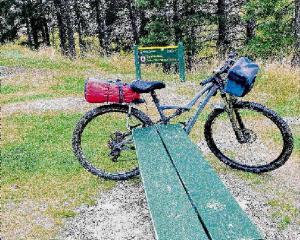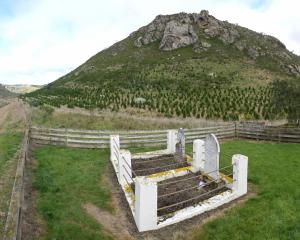Dr David Hill recently graduated from Victoria University with a PhD in education on the development of a systemic approach to the positive management of behaviour.
He is the first, and so far, the only person in New Zealand to gain the qualification.
Dr Hill said he worked with three secondary schools and six primary schools in Central Otago and had found up to 15% of the pupils at the schools had behaviour and learning issues - many of them severe.
These affected pupils were "significantly draining" on schools' resources, time and energy.
He had not worked in other areas of the country, but anecdotally - through discussion with colleagues - believed pupils throughout New Zealand experienced similar issues.
"Some kids range from being a suicide risk to being a danger to other pupils.
"There is a perception that we all do fairly well here in Central Otago. But, in reality, there's still that underbelly of dysfunction. There are kids who are involved in drugs, sex, alcohol, risky behaviour in cars and low-level criminal activity. These kids need help."
Dr Hill said his job was to go around Central Otago schools and work with pupils who had moderate learning and behavioural problems.
"But again, the reality is a lot of these pupils have significant needs."
During the past five years, the cases had got more complex and were taking longer to resolve.
Dr Hill said he did not know precisely what had caused this.
"A lot of families are under financial stress. It's also more common for children to be brought up by one caregiver."
While getting children more involved in community activities could help curb some inappropriate behaviour, Dr Hill said there was "a real need" for government agencies to be more active in tackling these issues.
"There doesn't appear to be any action from places like Child, Youth and Family services at the moment."
Police and mental health services in Central Otago had been "proactive" in supporting schools but CYF needed to make itself available to help deal with more difficult cases, he said.
A Child, Youth and Family spokesman said the agency was interested in hearing from Dr Hill if he had concerns about the care and protection of children.
The Ministry of Education declined to comment.
Dr Hill's comments followed the release of a New Zealand Council for Educational Research report, part of the Competent Children, Competent Learners project, which revealed 16-year-olds were having more adult experiences, such as experimenting with sex, alcohol and drugs.
The study started in 1993 and followed 500 young people from the Greater Wellington region through their schooling.
The latest report showed 84% of those young people, now aged 16, had drunk alcohol in the previous year and 51% had done something they regretted while drunk.
Half of them said they had been in love and 34% had had sex.













